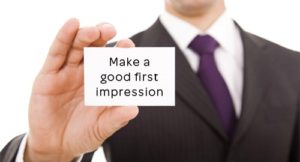Research your role
Success in a job starts with a solid foundation of knowledge on the job seekers part. Also be sure to understand the employer and the background of the person (or people) interviewing you. Remember, the more research you conduct, the more you’ll understand your role, the employer and the better you’ll be able to answer the interview questions.

Review interview questions and prepare your responses
The aim is to try and determine what you’ll be asked, so you can prepare detailed yet concise responses. Also, you do not need to memorize all the responses, but do develop talking points, as formal answers to questions is not actually what the interviewer will be looking for. Remember, it’s how you can think on your feet and know what you’re talking about without having to check your notes.

Dress for success
Plan out a wardrobe that is going to fit the right criteria for your role. If it is an office position for example, strive for the most professional appearance you can accomplish – so best not to turn up in shorts and flip-flops! Remember, the way you project yourself is very important.

Arrive on time, be prepared
The last thing you want to do is be late, or even forget you have an interview. So, set yourself plenty of reminders, leave yourself enough time to get anything you need ready, so that leaves enough time for you to physically and mentally prepare yourself just before the interview. It is also a good idea to schedule yourself to arrive 15 minutes early. Remember, you want to show your willing, punctual and reliable!

Make good first impressions
Be sure to greet everybody you meet with a hand shake and a smiley face. Remember, having a positive attitude and expressing enthusiasm are vital in the initial stages of an interview.

Be focused, confident, candid and concise
In an interview, the key to success is the quality and delivery of your responses. Keep them short and to the point, and remember, NEVER badmouth a previous employer, boss or co-worker, the interview is all about you.

The importance of body language
Poor body language can be a distraction at best, be sure to include smiling, eye contact, solid posture, active listening (try not to day dream, because they won’t like that) nodding, no fiddling or fidgeting and remember, give the interviewer your full attention.

Ask insightful questions
Your interviewer will make a judgement on your interest in the job, not just by how you answer questions, but by asking them. Remember, this shows you have done your research and that you are curios and interested about the job.

Sell yourself and close the deal
The winning candidate is often the jobseeker who does the best job responding to the interview questions and showcasing their fit for the job. As an example, if the job is for a sales person, you are most likely to hear “sell this pen to me”, so be prepared. The pen you are selling to the employer is your ability to fill the organization’s needs, solve its problems and propel its success. Remember, your trying to convince the employer they need you, and not the other way around

Thank the interviewer in person, email or by postal mail
Courtesy and politeness go far in interviewing. Thanking the interviewer at the end of the interview may not get you the job offer, but doing so will certainly give you the edge over any of the other finalists who didn’t bother. Remember, politeness never hurt anybody!

